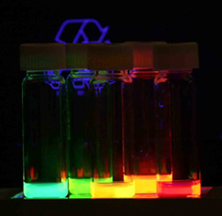NUS Researchers Achieve Heisenberg-Limited Precision in Quantum Metrology

Researchers from the National University of Singapore (NUS) have made significant strides in the field of quantum metrology, achieving Heisenberg-limited measurement precision through a newly developed protocol utilizing robust spin states. This advancement could have profound implications for technologies in navigation and the detection of extremely weak signals.
Quantum metrology, which exploits the unique properties of quantum systems to enhance measurement accuracy, has long been constrained by classical limits. Traditionally, reaching the Heisenberg limit (HL) requires highly entangled quantum states, such as Greenberger–Horne–Zeilinger (GHZ) states. However, generating and maintaining these states is a considerable challenge due to their vulnerability to environmental noise and measurement errors, which hinder practical applications.
The research team, led by Professor Gong Jiangbin from the Department of Physics at NUS, introduced a novel strategy that addresses these challenges. Their method leverages quantum resonance dynamics in a periodically driven spin system, known as the quantum kicked top. Unlike previous approaches that start with fragile entangled states, their protocol initiates with a robust SU(2) spin coherent state. This initial state is then evolved through carefully designed periodic interactions into strongly entangled states that encode quantum information.
At specific resonance conditions, the quantum system returns to its original coherent state due to a phenomenon known as quantum recurrence. This allows for straightforward state preparation and reliable readout, significantly enhancing the experimental feasibility of the protocol. "This round-trip evolution means we can start and end with a stable, experimentally friendly state, while still harnessing the quantum-enhanced sensitivity typically associated with more challenging entangled states," Professor Gong stated.
The findings, which were published in the journal Physical Review Letters on June 11, 2025, demonstrate that the quantum Fisher information (QFI)—a critical parameter that dictates achievable measurement precision—grows quadratically with both the number of particles (spins) and the sensing time. This optimal scaling can be sustained over extended durations, making the protocol robust against Markovian noise, a common form of environmental decoherence.
One of the protocol's key advantages is its compatibility with existing quantum hardware, such as platforms based on trapped ions or cold atoms. By merely adjusting operating parameters, researchers can implement the protocol without the need for specialized equipment or intricate state preparation.
The implications of this research extend far beyond theoretical advancements in quantum physics. The protocol's ability to achieve ultra-precise measurements without the typical complexities could revolutionize practical applications in quantum sensing technologies. As Professor Gong concluded, "Our approach opens new possibilities for practical and scalable quantum sensing, paving the way for the next generation of quantum technologies."
This development signifies a conceptual breakthrough in quantum metrology, providing a viable pathway towards Heisenberg-limited measurement precision by utilizing quantum resonance dynamics with simple initial states, thereby overcoming longstanding obstacles related to state preparation and readout. The research team’s work not only enhances the theoretical framework of quantum metrology but also sets the stage for its implementation in real-world applications, promising exciting advancements in various fields that rely on precision measurements.
Advertisement
Tags
Advertisement





